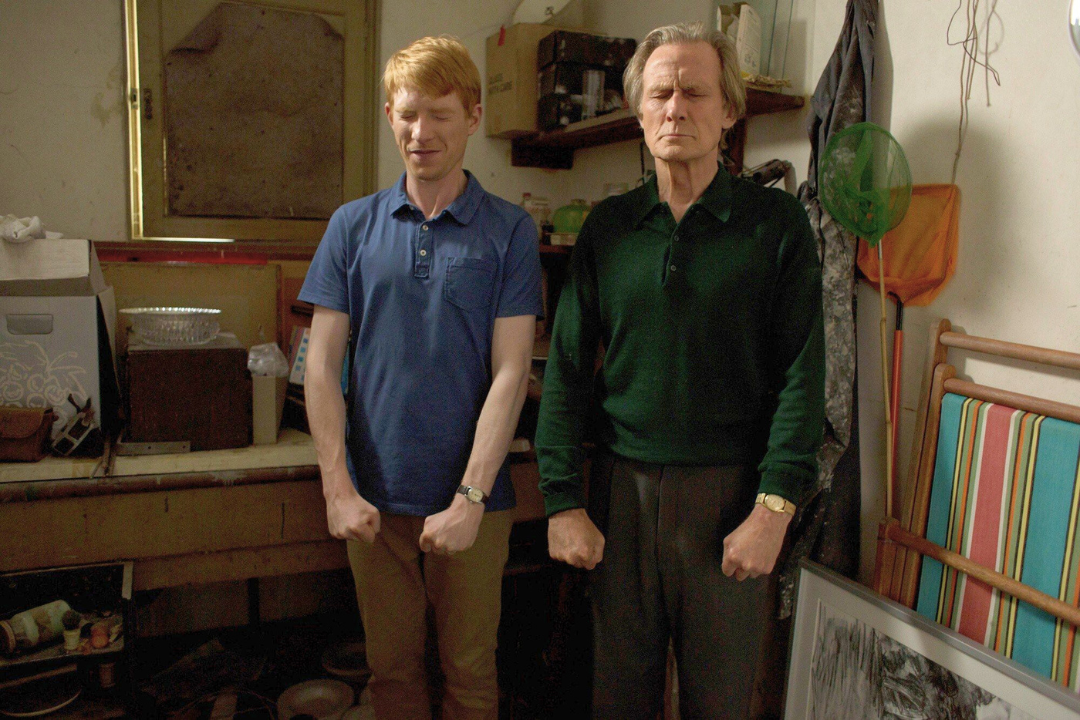‘About Time’ and the Beauty of an Extraordinary, Ordinary Life
The Scoop features personal essays on movie-centric topics.
By Justin Bower
Rom-coms are not nearly as popular as they were in the early 2000s, and revisiting many of them can be a nostalgic but cringeworthy experience. However, the 2013 Richard Curtis film About Time manages to balance romance, drama, humor, and even sci-fi perfectly, with an abundance of heart and no room for cringe.
The premise—that the men in one family can travel back in time—is odd for a film that isn’t strictly sci-fi, but About Time isn’t a typical rom-com. Sure, it stars romance queen Rachel McAdams, but its climax doesn’t revolve around a true love’s kiss at the abandonment of one’s fiancé (like McAdams’s well-known arc in The Notebook) or a happily ever after implied only after the credits roll.
About Time creates a world in which one romantic can go back in time to relive (and even alter) his past, but even a superpower can’t nullify the beauty and wonder of simply loving people.
Crafting a Nearly Picture-Perfect Life
One of the profound aspects of sci-fi and fantasy films is they create intricate, magical realms to convey ordinary truths. Time travel and otherworldly experiences are marvels in themselves, but the depth of films like About Time is how Tim (Domhnall Gleeson) and Mary (Rachel McAdams) build a life on which Tim could believe that “time travel seems almost unnecessary.” This isn’t limited to Tim’s romantic life; his family is tight-knit and his friends stick around. The film is a paean to love in all its forms, and the beauty of building a life of lasting relationships.
Domhnall Gleeson and Bill Nighy in About Time.
Dad (Bill Nighy) tells Tim about his time-hopping abilities when his son hits the age of 21, and Tim dedicates several do-overs to creating the perfect romantic moments with his sister’s friend, Charlotte (Margot Robbie). “For me, it was always going to be about love,” he says before he makes humorously pitiful attempts to win her over. After a brutal summer of rejections—more than the average time-bound romantic—Tim learns his first lesson: “All the time traveling in the world can’t make someone love you.” That doesn’t stop him from trying to craft interactions entirely rid of humiliation after he moves to London to practice law.
Tim learns his second lesson soon after meeting Mary, the girl of his dreams. He goes back in time to help his roommate, Harry (Tom Hollander), evade an embarrassing premiere of his play, but quickly realizes he erased his first date with Mary. The lesson is that even with time travel, Tim is still bound to realities of life and can’t create a perfect day for everyone. That doesn’t stop him from trying, however. Whether for Harry, his family, or himself, he tries to use his ability to craft a nearly picture-perfect life at every turn.
High Moments and Hard Days
Unlike many rom-coms, the depth and development of characters in About Time is thorough. Tim’s sister Kit Kat (Lydia Wilson), his friends Rory (Joshua McQuire) and Jay (Will Merrick), and others aren’t in the film to support the plot development of Tim and Mary’s relationship—they’re integral parts of the film. They have their high moments and their hard days. During monumental moments such as the wedding or Dad’s last days, every character shows such deep love and care for each other. This is necessary in real life, whether time travel exists or not. As a husband, I prize my relationship with my wife over all others, but I have come to realize just how deeply I rely on family and friends to get through this life. When times are hard, I’m ever grateful to navigate it with them.
About Time endures as an exceptional romance film because of the risks it takes. It dares to introduce a concept as heady and nerdy as time travel, even setting out its rules (they can only travel back in time, there is no Butterfly Effect, etc.) at the beginning. It wagers its story not upon a single relationship, but many. Some of the most moving moments happen between Tim’s parents, and especially Tim and Dad. (One of the lines that always gets me is Mum’s reaction to Dad’s cancer diagnosis: “I am so uninterested in a life without your father.”)
“The film is a paean to love in all its forms, and the beauty of building a life of lasting relationships.”
It also ventures to capture the wonder of a life of love, not merely pocketed moments of blissful romance. Tim and Mary’s relationship is realistic (barring the time travel thing) in that they have kids, a mortgage they can barely afford, and life after their wedding day isn’t always sunshine and roses. The film may be a bit naive about relationships—the majority of family and friend relationships are positive—but it’s accurate about the highs and lows of life.
The Beauty of an Ordinary Life
What makes About Time a truly moving experience is the final lesson Tim learns: all the time travel in the world couldn’t replace the beauty in everyday experience. His most formative and emotional moments often occur when he doesn’t time travel. “The truth is I now don’t travel back at all, not even for the day,” Tim says at the end of the film. “I just try to live every day as if I’ve deliberately come back to this one day, to enjoy it, as if it was the full final day of my extraordinary, ordinary life.” It’s in these moments that Tim truly enjoys the timeless relationships he has.
We may not have the superpowers to time travel and change all our pain and mistakes into second chances. But we face every day with the opportunity to nurture the love around us, celebrating the beauty of ordinary life. There aren’t many films that manage to capture such a profound message, track a host of relationships with humor, and include time travel, but somehow About Time does it flawlessly.
Justin Bower is a cinephile, horror fan, and avid reader. You can find him writing at Loud and Clear Reviews or on Instagram @jtalksfilm.


